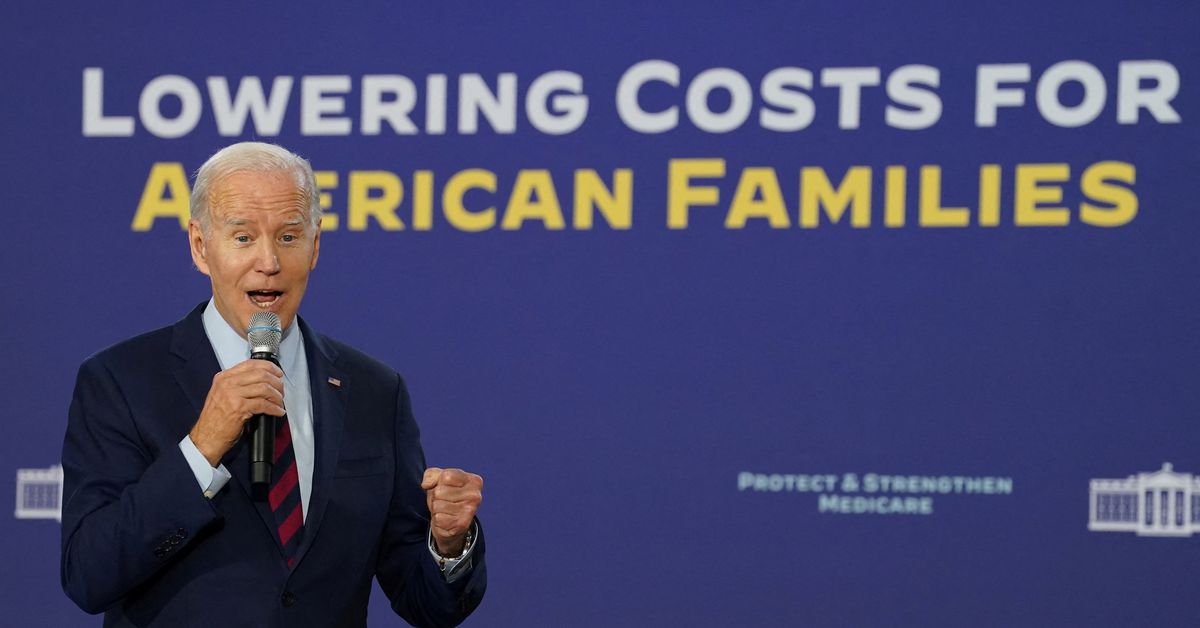The drugs selected to undergo negotiations are:
- Eliquis, a blood thinner
- Xarelto, a blood thinner
- Januvia, a diabetes drug
- Jardiance, a diabetes drug
- Enbrel, a rheumatoid arthritis drug
- Imbruvica, a drug for blood cancers
- Farxiga, a drug for diabetes, heart failure and chronic kidney disease
- Entresto, a heart failure drug
- Stelara, a drug for psoriasis and Crohn’s disease
- Fiasp and NovoLog, for diabetes
(via NBC)
So just for fucking boomers again fuck us young people.
I don’t understand. What would be in the Millennial or Gen Z drug list?
I couldn’t say for certain, but perhaps fewer to treat congestive heart disease and other coronary ailments
Other people getting less stuff doesn’t help you though. I wish more drugs were included, but I don’t wish there were fewer drugs covered. I suspect that almost any disease a younger person has, an older person is even more likely to have it.
Isn’t Medicare mostly boomers in the first place, or am I wrong?
Yes. I think they looked at the top prescription drug costs, including volume, and took aim at the ones where discounts would save the most.
Medicare is for old people, what did you expect?
Yep, the same ‘boot strap’ boomers. Even today, being given everything on a fucking silver platter so they can claim younger generations have it so easy and are lazy compared to struggles they grew up with like affordable housing, 1 income households, cheap or free higher education, strong labor unions, etc.
Great for the over-65s. How about being able to negotiate drug prices for everyone else? Oh right, I forgot. That’s evil socialism.
Gotta keep em alive so they can vote for this to be reversed once the Republicans are able to
Absolutely agree, and this will be more helpful to over 65s than others. I’m personally in favor of a single payer system. However there may still be some benefit to others not on medicare. This may give private insurers more leverage in bargaining lower prices for them too in their own negotiations with drug companies. They were always allowed to bargain of course but have less power than Medicare due to their small sizes. Even with this though if it’s anything like other services private insurance pays for, they’re probably going to still be paying out something like 1.5-2 times the Medicare rates, but since the Medicare cost will be lower the costs others are negotiating will probably lower some too.
The massive private insurance conglomerates all are owned by the same people as the pharma conglomerates. They already get massive discount rates and are basically self dealing anyway.
The whole house of cards is to extract maximum profits from public healthcare funds.
Basically nobody pays the list price other than Medicaid/Medicare or people with no coverage at all.
Oh absolutely, agreed on all points. I was just saying there’s a possibility others beyond Medicare recipients might see some improvement in prices on these drugs as a result of this, but it doesn’t address the many many root problems with our current system like you say. Americans are still going to be massively overpaying on drugs. At least one small step in the right direction though, Medicare paying less for drugs benefits us all indirectly too some since everyone is paying into that with taxes.
So true, even a baby step is better than the o motion or even backpedalling from the last 30 years.
This could be the thin edge of the wedge that opens things up. Even countries with pharmacare don’t negotiate all drugs, they have an approved list. Once the list exists, we can gradually expand it. So this is a huge change.
I think it’s good to always fight for more, but I think it’s self sabotaging when even wins like this are treated as failures.
There are a lot of comments in here pointing out how those are older people medication. I’m 33 and I’ll be on eliquis for the rest of my life. Without good insurance it’s over 600 bucks a month. This is phenomenal news for my future, and for my safety. While the vast majority is medications will impact the over 65 category, there are a lot of us who are still taking these too.
And until you are 70ish+ to take Medicare they will be milking every last dime from you they can,
This is great for those over 65. It’s a start I’d like to see it happen for everybody. I’m sure even this tiny bit of progress will be fought tooth and nail by every f****** Republican. They’re just so goddamn f****** evil.
https://www.politico.com/news/2023/08/29/biden-drug-prices-gop-00113404
Oh would you look at that… Downvote but you don’t have shit to say do you?
This is great. These negotiations will put a huge dent in Medicare’s RX spend and will demonstrate that real cost savings to the government payors and enrollees doesn’t bankrupt pharma — paving the way for broader application of this process.
This is the best summary I could come up with:
Aug 29(Reuters) - The Biden administration on Tuesday released its list of 10 prescription medicines that will be subject to the first-ever price negotiations by the U.S. Medicare health program that covers 66 million people, with big-selling blood thinner Eliquis from Bristol Myers Squibb (BMY.N) and Pfizer (PFE.N) among them.
President Joe Biden’s signature Inflation Reduction Act (IRA), signed into law last year, allows the Medicare health program for Americans aged 65 and over to negotiate prices for some of its most costly drugs.
Wells Fargo analyst Mohit Bansal said the savings made from negotiations on Jardiance, Januvia, Farxiga and Insulin Aspart, which cost the agency about $16.5 billion, could potentially free up Medicare’s budget and make it easier to cover diabetes or obesity drugs.
Drugmakers whose medicines were targeted on the list, including Novartis, Eli Lilly and Merck said they believed the price-setting provisions would stifle innovation in the sector and impact quality of care.
Bristol Myers CEO Giovanni Caforio said in an interview the inclusion of Eliquis would not impact its long-term strategy, particularly as the drug loses patent exclusivity in 2028, two years after the negotiated prices would take effect.
BMO Capital Markets analyst Evan Seigerman said that while the list includes many big revenue generators for drug companies, many of them will face competition shortly after or even before 2026 which was expected to lessen their profitability.
The original article contains 689 words, the summary contains 231 words. Saved 66%. I’m a bot and I’m open source!






